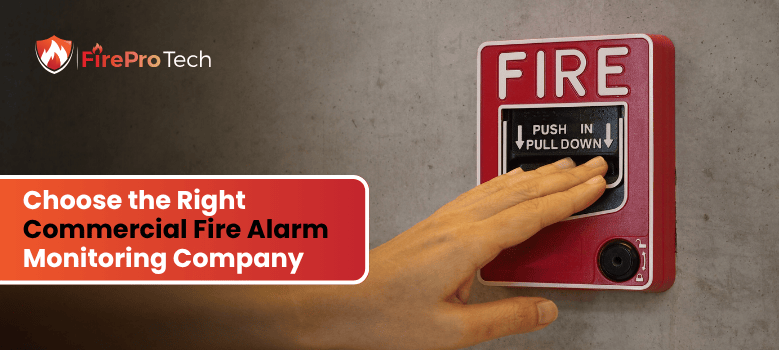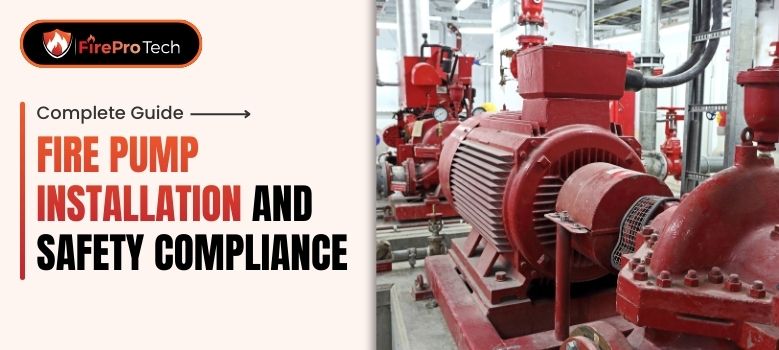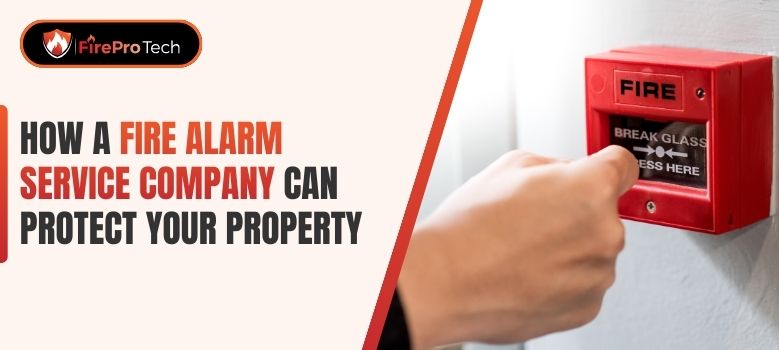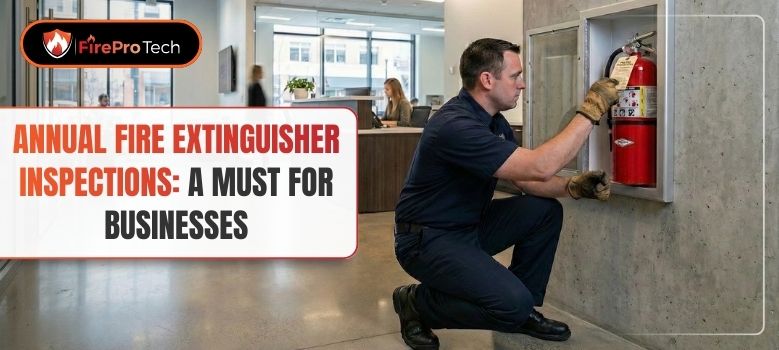
Choosing the right commercial fire alarm monitoring company is one of the most important safety decisions you can make for your facility. Whether you operate a high-traffic commercial building, a manufacturing plant, or a multi-tenant office complex, having real-time oversight of your fire alarm system isn’t optional—it’s a fundamental requirement for life safety and regulatory compliance.
In today’s risk-conscious business environment, fire alarm monitoring has evolved from a simple connection to the fire department into a dynamic, tech-enabled service that bridges your on-site fire detection systems with 24/7 remote monitoring centers. These centers don’t just receive alerts—they verify events, dispatch emergency services, and provide peace of mind when you need it most. However, not all monitoring providers are created equal. The wrong choice could mean costly false alarms, delayed emergency response, or worse, failure to detect a real fire.
This article will walk you through how to select the ideal commercial fire alarm monitoring company for your facility, how different monitoring systems work, and what features you should never compromise on. By the end, you’ll know exactly what to look for in a provider that can protect your people, property, and operations with confidence.
A commercial fire alarm monitoring company plays a critical role in the overall performance of your fire protection system. It serves as the lifeline between your fire alarm equipment and emergency responders, ensuring that every triggered alarm is received, verified, and acted upon without delay.
In a fire emergency, every second counts. A reliable commercial fire alarm monitoring company ensures rapid signal transmission to a dedicated monitoring station. Trained personnel then take immediate action—verifying the alarm, contacting the fire department, and notifying on-site contacts. This process significantly reduces response times and can be the difference between a contained incident and a catastrophic loss.
Beyond speed, accuracy is also essential. Monitoring stations with redundant systems, multiple communication paths, and fault-tolerant setups help prevent false alarms and missed signals. These safeguards keep your staff safe and minimize unnecessary disruptions to business operations.
Building codes and fire safety regulations require not only a properly installed fire alarm system but also reliable 24/7 monitoring in most commercial environments. Local authorities and insurers often demand proof that a UL-listed or equivalently certified monitoring provider oversees your fire alarm system. Partnering with the right commercial fire alarm monitoring company helps you stay compliant with NFPA 72, local AHJ requirements, and insurance stipulations—while avoiding fines or legal exposure.
When you choose the right commercial fire alarm monitoring company, you gain a partner who proactively supports your safety strategy. With responsive support, transparent reporting, and system health checks, your monitoring provider becomes a seamless extension of your facility operations. You no longer have to worry about overlooked alarms, outdated response protocols, or compliance gaps. Instead, you can focus on your core business, knowing your property is constantly protected.
Not all monitoring services function the same way. Understanding your options allows you to choose a commercial fire alarm monitoring company whose offerings align with your building infrastructure, risk level, and communication preferences.
A central-station monitoring service is the gold standard for commercial fire protection. It refers to a dedicated facility, staffed around the clock, that receives and processes signals from your fire alarm system. These centers are typically UL-listed and meet stringent standards under UL 827, including redundancy, power backup, and trained operators. When an alarm is triggered, the signal is instantly transmitted to the central station, where it’s verified and escalated to emergency responders if needed.
Central stations do more than monitor—they document events, generate compliance reports, and offer multi-channel communication with property owners and facility managers. A reputable commercial fire alarm monitoring company will always provide this level of service, ensuring full code compliance and uninterrupted coverage.
Supervised remote monitoring uses cloud-based systems or third-party partners to receive fire alarm signals. While still effective, this approach may introduce minor delays in signal processing and depends heavily on reliable internet connectivity. It’s more common in smaller facilities or temporary setups but may not meet the same regulatory requirements as central-station models.
However, when offered by an experienced commercial fire monitoring service provider, supervised remote setups can still provide rapid response, provided redundancy and verification protocols are in place.
Cellular monitoring uses dedicated wireless signals to transmit fire alarms directly to the monitoring station. It bypasses traditional phone lines, offering faster and more secure signal delivery. This method is ideal in locations where landline service is unreliable or unavailable. Many commercial fire alarm monitoring service providers now recommend cellular communication as the primary or backup method for high-reliability environments.
IP-based monitoring sends fire alarm signals over internet connections. It offers high-speed communication and is often used in modern smart buildings. However, its reliability depends on the stability of the building’s internet service. A qualified fire monitoring company may combine IP monitoring with cellular backup to ensure uninterrupted service even during internet outages.
Hybrid monitoring systems combine two or more communication paths—cellular, IP, or landline—to maximize reliability. These systems are especially beneficial for facilities with higher risk profiles or complex layouts. A well-established commercial fire alarm monitoring company will help you design a hybrid system tailored to your facility’s specific vulnerabilities and infrastructure limitations.
When selecting a commercial fire alarm monitoring company, it’s critical to look beyond surface-level features and dig into the elements that impact long-term reliability, compliance, and support. Making an informed decision means examining every layer of the service, from technology to customer care.
One of the most important indicators of quality is certification. A reputable commercial fire alarm monitoring company should hold UL 827 certification for central station operations. This ensures that the monitoring center adheres to rigorous standards for uptime, staffing, equipment redundancy, and emergency protocols. Additionally, they should demonstrate alignment with NFPA 72—the standard that governs the installation and performance of fire alarm systems.
Working with a company that understands your local Authority Having Jurisdiction (AHJ) requirements is also essential. Codes can vary significantly between municipalities, and an experienced provider will ensure that your facility remains compliant regardless of changes in local laws or inspection procedures.
Not all monitoring companies are equipped to handle complex commercial systems. A true commercial fire alarm monitoring company will have extensive experience working with large-scale fire detection platforms, including addressable panels, multiple-zone systems, and integrated setups that include sprinklers, smoke control, and special hazard equipment.
They must also understand the unique challenges of different facility types—from high-rises and warehouses to hospitals and industrial plants. This level of expertise ensures they can troubleshoot, interpret alarm signals accurately, and work efficiently with on-site personnel during emergencies.
Every second in a fire event carries weight. The commercial fire alarm monitoring company you choose should offer transmission technologies that deliver signals in seconds—not minutes. Whether through cellular, IP, or hybrid systems, the goal is immediate dispatch and fast escalation. Response protocols should be well-documented and include steps for alarm verification, fire department notification, and contact with building representatives.
Faster communication reduces the likelihood of property loss, minimizes downtime, and most importantly, saves lives. It also helps reduce false alarms, which can lead to fines and unnecessary disruption.
While national providers offer broad infrastructure, they often lack the local insight needed for fast service. A commercial fire alarm monitoring company in Houston, for example, will have a better understanding of regional codes, responder coordination, and seasonal risk factors. Even if your facility isn’t located in Houston, choosing a provider with local teams or regional partners ensures prompt maintenance, system updates, and real-time support during fire events or false alarm investigations.
Understanding the full cost of fire alarm monitoring is crucial for budgeting and cost control. The best providers will offer transparent pricing models with no hidden fees for signal transmissions, maintenance checks, or service calls. Look closely at contract terms. A reputable commercial fire alarm monitoring company should provide flexible agreements that match your operational needs—monthly, annual, or multi-year contracts with clear exit clauses.
Some companies also offer bundled services that include inspection, testing, and maintenance along with monitoring. These all-in-one packages reduce vendor coordination and streamline your fire protection program.
Once you’ve narrowed your list of potential providers, comparing proposals helps you evaluate which commercial fire alarm monitoring company truly aligns with your facility’s needs. A well-structured comparison process can prevent costly missteps and ensure you select a partner who delivers both value and reliability.
A professional monitoring company should offer to conduct a detailed site assessment before finalizing any service agreement. This includes evaluating your existing fire alarm infrastructure, identifying communication gaps, and recommending upgrades if necessary. A physical walkthrough also allows the provider to understand your building layout, access points, and equipment placement—critical data that can affect signal reliability and emergency response.
Technology demonstrations are equally important. Ask providers to simulate alarm conditions and show how signals are received and processed. The demonstration should include every step of the response chain, from signal receipt to fire department notification. A reliable commercial fire alarm monitoring company will be confident in showcasing the speed, clarity, and redundancy of its platform.
Read the fine print in service agreements. Look for defined Service Level Agreements (SLAs) that spell out response times, system uptime expectations, and procedures for false alarms or maintenance testing. The commercial fire alarm monitoring company should offer a guarantee for 24/7 availability and define roles and responsibilities clearly. It’s also important to clarify whether your system will receive dedicated account management or if support is routed through a general service queue.
Verify how often the provider performs internal system tests and what kind of reports they generate for your facility. Comprehensive documentation is essential not just for recordkeeping, but for passing inspections and insurance audits.
Monitoring is just one part of the fire protection lifecycle. Maintenance, inspection, and testing complete the picture. Choose a commercial fire alarm monitoring company that either performs or coordinates these services as part of its offering. Integrated support ensures that your systems stay functional, your signals are being received properly, and your fire alarm components are always ready for real-world conditions.
Some companies also offer digital dashboards that provide access to inspection logs, signal histories, and monitoring reports. This visibility helps facility managers make informed decisions and keep all stakeholders in the loop.
Fire alarm monitoring is just one part of a comprehensive fire protection approach. To truly safeguard your commercial facility, it must integrate seamlessly with the other systems designed to detect, suppress, and respond to fire events. A capable commercial fire alarm monitoring company understands this interconnected landscape and can help ensure that every part of your system works in harmony.
Sprinkler systems are a frontline defense in many commercial facilities, especially those with high fire loads or open floor plans. When integrated with a commercial fire alarm monitoring company’s system, any activation or impairment in the sprinkler setup is immediately transmitted to the central monitoring station, which is essential for businesses utilizing Fire Protection Services in Baytown. Whether it’s a drop in pressure, a tamper switch alert, or an actual sprinkler discharge, the monitoring team can escalate the event promptly and ensure emergency response is on the way.
This kind of integration reduces the chance of missed incidents, accelerates response time, and offers added protection during off-hours or holidays when facilities may be unoccupied.
In a fire, visibility drops fast, and safe evacuation depends on properly functioning emergency lighting and exit signage. Some advanced fire alarm panels can monitor the operational status of these systems, and a comprehensive commercial fire alarm monitoring company will incorporate that functionality into its response protocols.
If emergency lighting systems fail during a power outage or fire event, the monitoring center can alert facility managers in real time. This layered protection ensures that not only are occupants warned of danger, but they can also find their way to safety without confusion or delay.
Certain environments—like server rooms, laboratories, or storage facilities for flammable materials—require special hazard suppression systems such as clean agents, CO2, or foam. These systems are highly sensitive and must be monitored closely to ensure safe deployment and operational readiness.
An experienced commercial fire alarm monitoring company will integrate these systems into its service model, receiving real-time alerts about discharges, system faults, or maintenance needs. This level of oversight is essential for environments where downtime or false discharges could lead to significant financial or operational consequences.
When all components of your fire protection system are tied into a central monitoring hub, the entire facility benefits from faster, more coordinated response. Trained monitoring staff can detect simultaneous signals—such as an alarm trigger, suppression system activation, and power failure—and communicate them as a single event with greater context.
This comprehensive approach allows emergency responders to arrive better informed, while facility teams can act more decisively under pressure. It elevates the effectiveness of your overall safety strategy and builds resilience against fire-related risks.
Now that you’ve reviewed the essential components of fire monitoring, it’s time to narrow your selection and choose the right provider. The final decision should be guided by a structured comparison of services, credentials, technology, and support—ensuring that the commercial fire alarm monitoring company you choose can meet both your current and future needs.
Start by confirming that your potential provider holds all necessary certifications, including UL 827 for central station operations and full compliance with NFPA 72 standards. Ask how long they have been in business, and whether they specialize in commercial systems. A seasoned commercial fire alarm monitoring company brings industry-specific knowledge and proven systems that have been tested under real-world conditions.
You should also look for experience in your industry or building type. The safety needs of a retail store differ from those of a hospital or a distribution warehouse. Providers with niche expertise will understand your regulatory environment, risk factors, and emergency response workflows.
The technology stack used by your provider is a core element of their value. Inquire about the type of communication pathways they use—whether cellular, IP, or hybrid—and ask for documentation of signal speed and redundancy. A robust platform should offer multi-path communication, automatic failover, and fast signal verification.
Evaluate how the provider handles alarms: Who receives them? How fast are they acknowledged? What protocols are followed for false alarms? These questions will reveal whether a commercial fire alarm monitoring company has the infrastructure to support fast and accurate response under pressure.
Support doesn’t end with installation. Choose a provider that offers dedicated account management, accessible technical support, and optional maintenance or inspection services. This holistic service model ensures that your fire monitoring setup remains functional, compliant, and responsive over time.
The ability to bundle fire alarm inspection, device testing, and system health monitoring with your alarm monitoring service can simplify your vendor relationships and improve operational efficiency. It also ensures that any issues identified during routine checks are addressed quickly, with no lapse in safety coverage.
Finally, confirm that the provider’s pricing model aligns with your budget and risk profile. There should be no hidden fees for signal transmissions, after-hours service calls, or inspection reports. Contracts should be clear, with service tiers and cancellation policies easy to understand.
Ask about scalability. A forward-thinking commercial fire alarm monitoring company will offer modular solutions that can grow with your facility—adding new zones, integrating new systems, or expanding coverage as your operations evolve.
By following this checklist, you can confidently select a commercial fire alarm monitoring company that provides not only the technical capabilities but also the strategic support necessary for long-term safety and compliance.
Choosing the right commercial fire alarm monitoring company is more than a matter of pricing or convenience—it is a decision that directly impacts the safety of your people, property, and business operations. The right provider brings more than just technology. They offer expertise, reliability, compliance support, and a proactive approach to keeping your facility protected around the clock.
From understanding your specific building needs to ensuring fast and accurate signal transmission, a qualified commercial fire alarm monitoring company becomes an essential part of your fire protection strategy. Their ability to integrate with your sprinklers, suppression systems, emergency lighting, and inspections gives you peace of mind and frees your team to focus on core responsibilities without compromising safety.
At FirePro Tech, LLC, we specialize in commercial fire alarm systems and monitoring services that meet the highest industry standards. Our team is trained, certified, and ready to help you design a monitoring solution that fits your environment and risk profile. If you are looking for a partner who puts safety, compliance, and performance first, now is the time to schedule your consultation.
A commercial fire alarm monitoring service connects your fire alarm system to a central monitoring station staffed by trained professionals. When your alarm system is triggered—by smoke, heat, or manual pull—the signal is instantly sent to the monitoring center. There, operators verify the event and contact emergency responders. A commercial fire alarm monitoring company ensures that every alert is received and escalated promptly, reducing response time and helping prevent loss of life or property. FirePro Tech, LLC offers 24/7 monitoring with integrated emergency support tailored to your building’s specific needs.
UL certification verifies that a fire monitoring company meets strict performance, redundancy, and staffing requirements. UL 827, in particular, applies to central station services and mandates continuous operation, backup power systems, and trained personnel. Choosing a UL-listed commercial fire alarm monitoring company gives you confidence that your alarm signals will be received and acted upon quickly and reliably. FirePro Tech, LLC partners with UL-listed centers to provide industry-compliant protection for commercial facilities of all types.
The most common communication methods include cellular, IP-based (internet), traditional phone lines, and hybrid configurations. Cellular offers fast and reliable signal delivery without dependence on phone or internet services. IP-based systems allow high-speed transmissions through secure networks. A hybrid approach combines multiple methods for redundancy. A dependable commercial fire alarm monitoring company like FirePro Tech, LLC will help determine the right communication pathway for your location, infrastructure, and risk profile to ensure uninterrupted monitoring.
A quality commercial fire monitoring service should transmit and process alarm signals within seconds. Ideally, your system should relay alerts to the monitoring center in under 60 seconds. Faster transmissions mean quicker emergency response and reduced potential for property damage or injury. FirePro Tech, LLC utilizes advanced technology and multiple communication paths to ensure ultra-fast delivery of alarm signals and immediate operator response for all monitored facilities.
Yes, many building codes and insurance policies require 24/7 monitoring for commercial fire alarm systems. NFPA 72 and local jurisdictions often mandate constant supervision to ensure that fire alarms are not only detected but responded to promptly. A commercial fire alarm monitoring company ensures compliance by offering continuous coverage and verified signal processing. FirePro Tech, LLC helps businesses stay code-compliant and audit-ready through robust monitoring and documentation services.
When comparing proposals, evaluate certifications, technology platforms, communication speed, maintenance options, and total cost of ownership. Look for providers who offer on-site assessments and system demonstrations. A dependable commercial fire alarm monitoring company should also provide clear service-level agreements and documented emergency procedures. FirePro Tech, LLC encourages transparency and helps clients make informed decisions by offering custom proposals, full inspections, and scalable monitoring plans tailored to commercial environments.
Yes, a commercial fire monitoring company can and should integrate with your full fire protection system—including sprinkler systems, emergency lighting, and special hazard suppression. Integration ensures a coordinated response and enhances both safety and compliance. FirePro Tech, LLC specializes in multi-system integration, allowing our monitoring team to receive and act on alarms from all major components of your fire protection infrastructure. This centralized oversight improves performance and streamlines emergency response across your facility.

Fire pump installation is essential to effective fire protection in Houston, providing the water pressure...

Every property owner recognizes that safety, especially fire safety, is a top priority. Fires can...

Fire safety remains a top concern for businesses in Houston and its neighboring areas, especially...